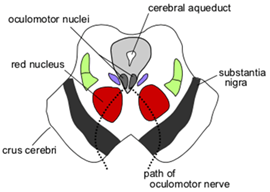


Joseph R. Anticaglia, MD
Medical Advisory Board
Parkinson disease is commonly referred to as a movement disorder of the nervous system that progresses slowly over time. The gradual reduction of dopamine in brain cells causes patients to typically experience motor (movement) symptoms of PD which include tremor (shakiness), rigid muscles, balance problems, difficulty walking and slowness or absence of movement.
A previous article discussed the motor symptoms of PD. However, non-motor symptoms have been very worrisome to PD patients, and in retrospect, have demonstrated, at times, to be early indicators of this disease. Non-motor symptoms do not involve coordination, movement, mobility, or performance of physical tasks — examples include, fatigue, slurred speech, and masked-like face

Jake, a 68 year old retired postal worker, complained of loss of smell and taste, a weak voice and not remembering things. People told him, “You’re not getting any younger.” He decided to check it out with his family doctor
Physical examination and image studies were normal. Laboratory tests were done, and the only abnormal finding was a low level of uric acid in the blood. Two years later, movement symptoms appeared, and he was diagnosed with Parkinson’s disease. Doctors reviewed Jake’s medical history and noted those non-motor symptoms turned out to be early warning symptoms of Parkinson’s disease.
Roberta, a 64 year old retired office worker, saw her internist because she had trouble sleeping, trouble with her memory, constipation and felt terribly tired all the time. “Doctor, this is not me. I don’t have any energy and I seem to be falling apart.”
Her doctor prescribed medication for sleep and depression. A few years later, motor symptoms of Parkinson’s disease became evident, and she was given medication for PD. Looking through the retroscope, her complaints fit a pattern which eventually was diagnosed as PD.
The diagnosis of PD is a clinical one based on the patient’s symptoms and the doctor’s physical examination. Of note, low blood level of uric acid in men has been associated with Parkinson’s disease.
The symptoms and course of Parkinson disease varies from person to person. No one gets all the symptoms of PD, and nobody dies from Parkinson’s disease. But almost everyone diagnosed with PD will get at least one of the non-motor symptoms of this disease. Among the earliest of the non-motor symptoms are:
A decreased sense of taste and smell is due to the degeneration on these sensitive nerves caused by Parkinson disease.
One of the characteristic findings in people with PD is bradykinesia, i. e., slowness of movement; when this happens in the gastrointestinal tract, this degenerative disease slows down bowel movements. As a result, people complain of constipation.
Dopamine, the chemical messenger produced by the brain cells, besides influencing movement and balance, it also helps regulate feelings and emotions. Persons with PD experience mood disorders such as anxiety, depression, and impulsive behavior beyond the normal responses to life’s stress. In addition, personality changes such as frustration, irritability or suspiciousness may occur in PD
Sleep disturbances are troublesome concerns of individuals with this problem. PD may trigger vivid dreams, interrupt nighttime sleeping and cause excessive daytime sleepiness.
A low or soft voice may be an early sign of PD. Have people remarked that your voice has changed?
Non-motor symptoms are worrisome, common and can be more bothersome than motor symptoms. Some have called certain aspects of the disease, the “Parkinson’s You Don’t See.” It’s crucial for health care professionals be vigilant to these early, “non-movement” symptoms.
This article is intended solely as a learning experience. Please consult your physician for diagnostic and treatment options.